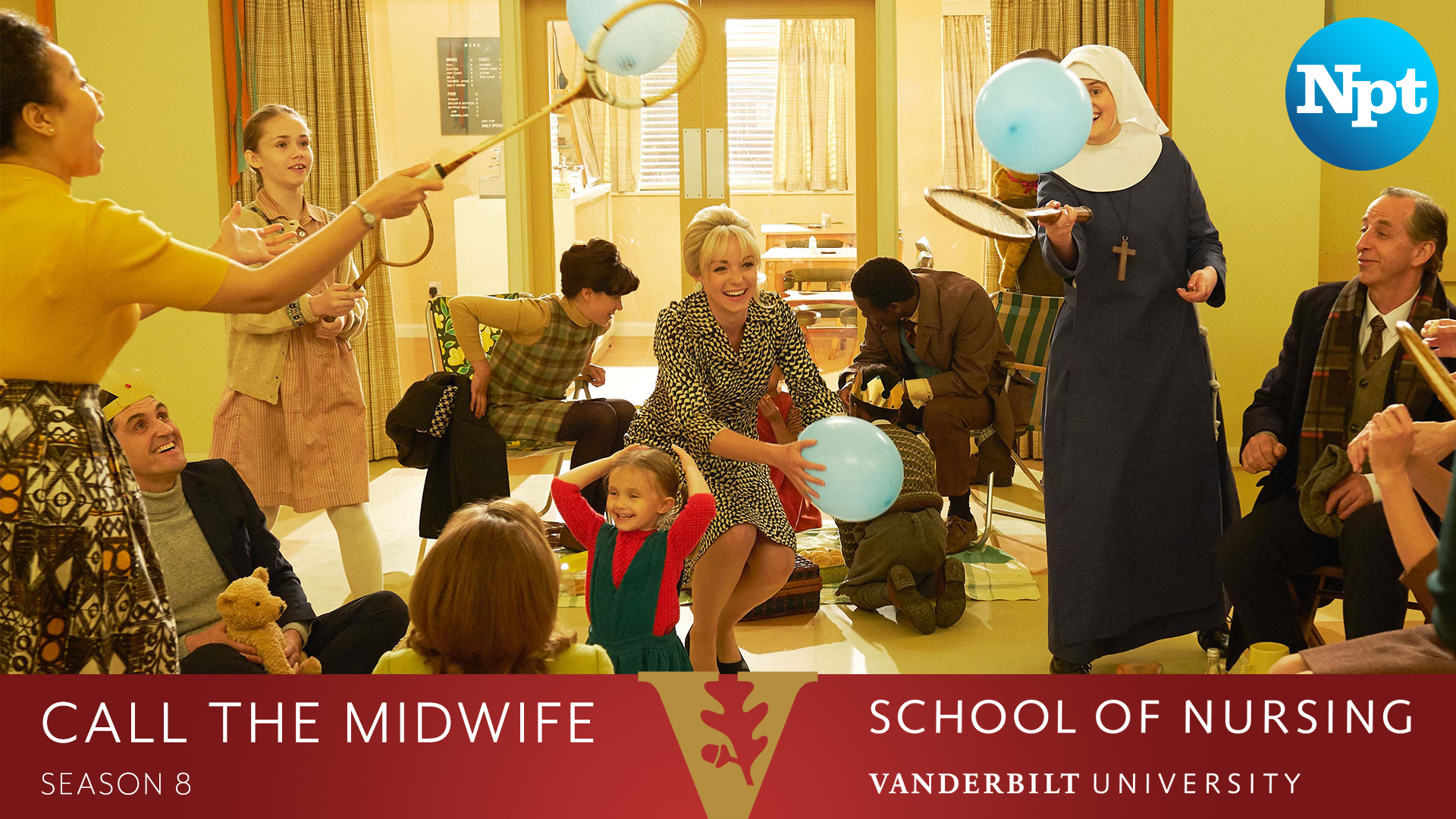By Michelle Collins, Ph.D, CNM, FACNM, FAAN
Vanderbilt University School of Nursing
Call the Midwife is back for its eighth season and so are the faculty of the Vanderbilt University School of Nursing with a weekly guest blog. Watch the show Sundays at 7 p.m. through May 19, then read our blog each Monday morning for historical and contemporary context about the previous night’s episode. SPOILER ALERT: Some posts may contain spoilers.
History does not repeat itself, but it does rhyme.
Mark Twain’s bon mot rings true in this season’s first episode. The year is 1964, and Poplar is abuzz with the anticipation and excitement of a royal birth. Just as the world eagerly awaited Queen Elizabeth’s delivery of her fourth child, the arrival of Prince Harry and Meghan’s royal baby this spring incites a similar level of interest.
This Call the Midwife storyline deals with another issue that is as topical now as it was then. Elective termination of pregnancy was illegal in 1964. Women would seek out unskilled (and often dangerous) “practitioners” who used a variety of methods, which included crude instrumentation or the ingestion of substances like Epsom salt, pennyroyal, or turpentine. As happened to the woman in this episode, these options often resulted in significant harm, complications like severe infections or hemorrhage, or even death to the woman.
In this episode, a young woman experiencing complications after pregnancy termination is brought to Nonnatus House for care. Nonnatus House, home to the nuns (and midwives) of the Catholic Order of St. Nonnatus, claims Raymond Nonnatus (whose own mother died at his birth) as the patron saint of childbirth, midwives, children and pregnant women. It may seem like the least likely place to which a woman in this situation would be drawn. However, as Sister Julienne says in the episode, “midwife means ‘with women.’ Midwives have always ‒ and WILL always ‒ care for women, regardless of the circumstances by which they need our care. It is simply what we do.”
The history of midwifery has always included care of the most vulnerable; a legacy that we are proud to carry today. The midwifery model of care is not one of patriarchy (which is characteristic of the medical model of care); rather, it is relationship-based. We walk side by side with our clients regardless of their circumstances, delivering care that is holistic, compassionate and non-judgmental. The women of London’s East End knew that then, just as our clients know that today.
The issue of elective termination has been debated since the dawn of time ‒ literally. Midwives have long stood passionately on both sides. It is not uncommon for nurses, physicians and midwives to face ethical situations wherein personal morals and convictions are put to the test. As I’ve written before in these posts, it’s easy to “armchair quarterback” other people’s decisions; in reality decisions are usually less black-and-white when you’re in the middle of the pain, angst and despair that life sometimes brings.
Jennifer Worth’s voice-over at the start of the episode notes: “Every day dawns anew; every morning begins afresh. We seek to be cleaner, brighter, more polished versions of ourselves. We will be better. We will be beyond reproach. We will strive to be perfect, leave nothing to chance, and believe everything is possible.” None of us has the answers to life’s toughest questions; the best we can do is to strive to be better versions of ourselves, every day – caring for each other regardless of our circumstances.
 Michelle Collins Ph.D., CNM, FACNM, FAAN is a Professor of Nursing and Director of the Nurse-Midwifery Program, at Vanderbilt University School of Nursing.
Michelle Collins Ph.D., CNM, FACNM, FAAN is a Professor of Nursing and Director of the Nurse-Midwifery Program, at Vanderbilt University School of Nursing.
